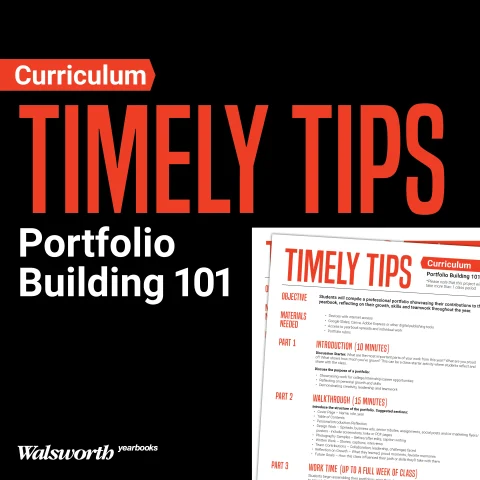Text is the most important aspect of the yearbook. While pictures will be admired first, it is the body copy and the cutlines that accomplish the book’s final goal by capturing the tone of the year. Time and time again, I have had to deal with poorly written copy, whether it is riddled with grammatical mistakes or lacks the interest that draws in the reader. Cleaning up the text is an easy process, with a few basic tips.
01. Hit them hard.
This is my second year as the yearbook editor at Zeeland West High School in Zeeland, Mich. I have made a point of starting the year out with some elementary topics. First, we cover the terminology unique to the yearbook world, from cutlines to gutters and everything in between. After we have chosen our photographers for the year, we segue into the written word. We cover cutlines, and each writer has to find a caption from a magazine that has pizzazz. We stress the importance of focusing on one interesting facet of the year that was unique by giving writers examples of well-written copy, and we have several mottos, one of which is: “Said is dead,” a cry for more colorful language.
Once the writers show a certain level of proficiency (or once deadlines start approaching), they begin to apply the techniques they have learned to the copy of the book. A little time spent at the beginning of the process makes the rest of the year run more efficiently.
02. Talk about it.
It is important to keep the editing process a learning process. Our editing staff does not just make corrections on the copy, but also adds helpful advice on how to improve. The red ink is a shock factor, and can be quite daunting to new writers. With a little verbal encouragement, they can tackle the corrections with a clear head with the knowledge that they are improving.
03. People are crucial.
Our staff follows strict guidelines for interviews. To receive credit for the body copy, staff members must attach their interview notes, signed by the person interviewed. These notes are filed for future reference at late-night editing sessions. When copy runs short after our editors work their magic, we can throw in some secondary quotes to better capture the atmosphere of the story.
We also encourage our writers to just sit and chat with the club or team members to decide how they want to tackle the event. It is the job of the writers to become experts on the spreads they cover, complete with records, downfalls and memories. Without common knowledge in that area, how are writers supposed to take a fresh angle?
With a little know-how and a lot of hard work, body copy can improve. Starting with an introductory session in yearbook writing and tackling individual problems along the way can make the whole process a learning one while ensuring the quality of the yearbook for generations to come.



